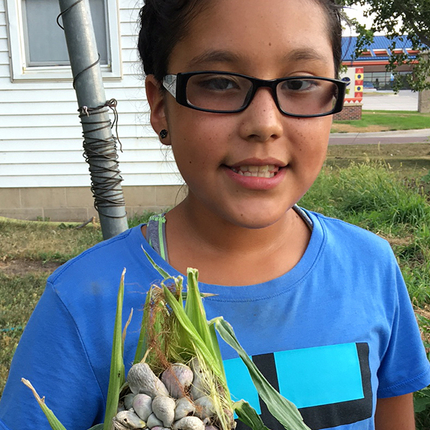Becky Keim contributed to this article.
Prior to European colonization efforts, the Santee Sioux people in northeast Nebraska were a “food sovereign” nation – they existed in a closed loop system in which they provided for themselves, by their own efforts, from their own land, and without dependence on outside governments and systems. By producing and preserving their own food, the people ensured they had access to abundant sources of healthy food year round.
This closed loop food system was an integral part of Santee Sioux culture, providing sustenance in addition to existing as an essential component of religious and other ceremonies. Today, however, the Santee Sioux people face a loss of cultural connection to food, as well as numerous barriers to food access, including unemployment, poverty, and limited food outlets.
According to the U.S. Food Sovereignty Alliance, the most accepted definition of “food sovereignty” is the “right of peoples to healthy and culturally appropriate food produced through ecologically sound and sustainable methods, and their right to define their own food and agriculture systems.”
Santee community members and the Center for Rural Affairs take a look at the Santee Sioux people’s food efforts in our latest report, “Digging In: Supporting a Healthy, Sustainable Food Future in Santee Sioux Nation.”
For the past several years, Santee residents have been embracing more gardens and local markets for fresh and traditional foods. The report identifies new ways to bring fresh foods into the community overcoming barriers of income and transportation.
By asserting a desire to rebuild a sovereign food system, they can create a healthier community, revitalize traditional foods, create a self-sufficient food system, and develop a more resilient Nation.




